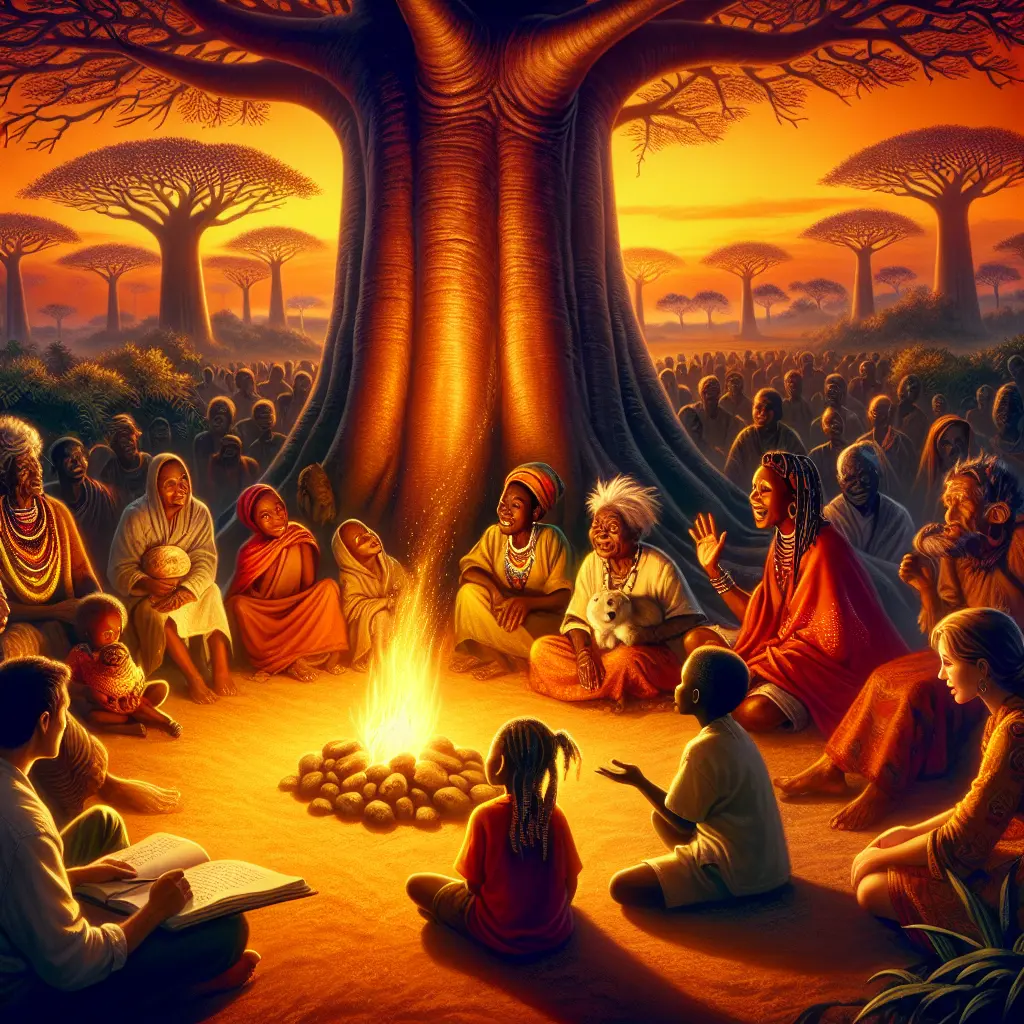
Oral storytelling traditions in Africa form a crucial element of the continent's rich cultural heritage. They serve as a medium for transmitting history, values, and entertainment through generations. Far from being just tales of old, these vibrant practices maintain their relevance in contemporary society. The cultural significance of oral storytelling is immense, as it preserves African oral history and conveys it with the richness and complexity often found in African myths and legends.
The Role of Oral Storytelling in Preserving African Cultural Heritage
Oral storytelling plays a vital role in preserving African cultural heritage. This practice encompasses performance, music, and audience engagement, ensuring that history and values are passed down through generations. Traditional African storytelling acts as a lens through which communities understand their origins and societal values.
In West Africa, griots are revered as custodians of oral literature, keeping alive stories that encapsulate community essence and historical events. This cultural significance is mirrored globally, emphasizing the universal importance of maintaining cultural narratives.
The Dynamic Nature of Storytelling in African Culture
Storytelling in African culture is not merely a static recitation but a dynamic interaction between the storyteller and the audience. This interplay ensures that each story remains engaging and relevant. African storytelling techniques are diverse, reflecting the continent's vast cultural landscape. From West African griots to Southern African storytellers, each region boasts unique methods that contribute to a rich tapestry of oral narratives. These narratives often integrate local customs and music, creating immersive cultural experiences.
The Impact of Oral Narratives in Africa
The impact of storytelling in Africa extends beyond entertainment; it shapes societal norms and offers a framework for understanding the world. African oral narratives capture diverse perspectives, serving as a testament to the continent's multifaceted identity. The stories—whether myths or historical accounts—offer profound insights into societal values and ethics.
Preserving African Oral Traditions in Modern Times
Preserving African oral traditions is essential for maintaining cultural identity and understanding storytelling's role within societies. As globalization challenges cultural uniqueness, integrating traditional techniques with modern innovation becomes increasingly important. Projects worldwide highlight how innovation can help preserve cultural heritage by merging tradition with contemporary design.
Conclusion
The significance of African oral traditions cannot be overstated; they are both repositories of knowledge and expressions of identity. These narratives are integral to understanding the continent's past and its ongoing evolution. By appreciating these stories' depth and complexity, we acknowledge their critical role in shaping individual identities and collective cultural heritage.
As we continue exploring African folklore and its contemporary relevance, I encourage you to reflect on how these narratives shape our understanding of history and identity. Share your thoughts or experiences related to oral storytelling in the comments below. Let's engage in a conversation about the enduring power of these traditions and their role in our lives today.
For further reading on the significance of African oral traditions, explore resources such as the Smithsonian Center for Folklife and Cultural Heritage or the British Library's collection on oral literature.
Thank you for joining this exploration of African oral storytelling. May we continue to honor these timeless narratives, ensuring their resonance across generations.
Warm regards,
Benjamin Hartley